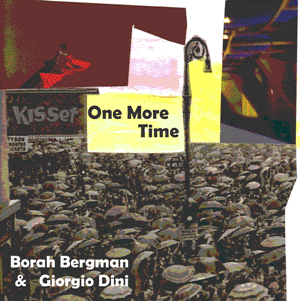The
near-80 year old
Brooklyn-born Borah Bergman is one of the most singleminded and unique
pianists
in the history of jazz. Crediting Bud Powell as well as Art Tatum's
dexerity,
Teddy Wilson (with whom he briefly studied), Lennie Tristano's hornlike
phrasing, and Thelonious Monk's stride as his main pianistic influences
- he
has consciously and uniquely emphasized equality between his left and
right
hands epitomized by frequent cross-handed playing. Influenced also by
chamber
music and Bach, and Dixieland/New Orleans where all of the instruments
play
contrapuntally and polyphonically, Bergman has created a style which
allows him
to improvise differently than any other pianist in the history of jazz.
Though
he didn't play piano until he was in
his 20s - he was well into his 40s for his 1975 recording debut (Discovery,
Chiaroscuro Records) for which he played the same piano Earl
“Fatha" Hines
had played and recorded on earlier that day in the studio - Bergman has
always
been determined to create a new way of playing. He spent several years
teaching
his left hand to be able to play everything his right could play, which
for a
while took the form of compositions and improvisations entirely for the
left
hand. He was also inspired by the example of John Coltrane's
“Chasin' the Trane"
to build a style of great endurance, and by the music of Ornette
Coleman, and
to have that style reflect a greater equality of its parts. He has
credited his
parent's left-wing beliefs for these ideas of equality inherent in his
even-handed, ambidextrous approach.
Regularly
hailed for his originality,
Bergman continues to forge a new pianistic path as a one-of-a-kind
pianist,
composer and improviser whose originality lies in his entirely personal
approach and utilization of left-handed and cross-handed techniques.
(by
Laurence
Donohue-Greene, ALL About Jazz New York).
Giorgio
Dini has a
tremendous depth to his knowledge and experience of improvising, coming
in
contact with jazz masters Percy Heath, Charlie Haden and Pierre
Michelot in his
youth and subsequently immerging himself in renaissance, Arabic and
avant-garde
music. This shows in the bassist’s confidence, his unbounded
imagination and
his singular approach, which draws col legno wails, percussive
flutters,
microtonal slides and heavy rounded bass notes from his instrument.
(as
reviewed by Double Bassist nr.38).

